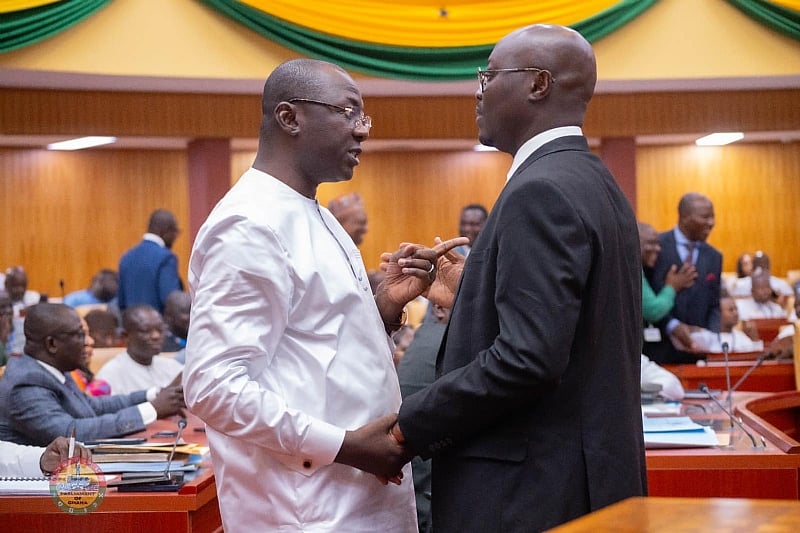The proposed Energy Sector Levies (Amendment) Bill, 2025, introduced by Finance Minister Dr. Cassiel Ato Forson, has sparked a heated debate in Ghana’s Parliament. Former Finance Minister Dr. Mohammed Amin Adam has emerged as a vocal critic of the bill, arguing that the proposed GH¢1 levy on petroleum products negates the economic benefits Ghanaians should be experiencing from the appreciating cedi. Dr. Amin Adam contends that the levy effectively cancels out any relief consumers might have received from lower fuel prices resulting from the strengthening currency. He characterizes the new tax as “punitive and unnecessary,” asserting that it sends mixed signals to the public and potential investors, undermining confidence in the government’s economic management. Furthermore, he questions the timing of the levy, arguing that imposing an additional financial burden on citizens when the economy is just beginning to stabilize is counterproductive and erodes public trust. His criticism centers on the idea that economic progress should translate into tangible benefits for the population, not further hardship.
Dr. Amin Adam’s critique emphasizes a fundamental disconnect between the government’s stated economic goals and the impact of the proposed levy. While the government touts the cedi’s appreciation as a sign of economic recovery, the levy effectively neutralizes this positive development for ordinary citizens. He argues that the levy undermines the very essence of the celebration surrounding the strengthening currency, as it prevents the benefits from reaching the pockets of Ghanaians in the form of reduced fuel prices. This, in his view, contradicts the principles of responsible governance and raises questions about the government’s commitment to easing the cost of living. The levy, in effect, becomes a symbolic confiscation of the economic gains achieved through the cedi’s appreciation, leaving citizens with no tangible improvement in their financial situation.
The government, on the other hand, justifies the levy as a crucial measure to address pressing issues within the energy sector. The Ministry of Finance argues that the revenue generated from the levy is essential for tackling accumulated debts, improving liquidity, and ensuring a stable supply of electricity. They maintain that these interventions are necessary to stabilize the energy sector and prevent future disruptions in power supply, which would have broader negative consequences for the economy. According to the government, the long-term benefits of a stable energy sector outweigh the short-term impact of the levy on fuel prices. They portray the levy as a necessary sacrifice to ensure the long-term sustainability and reliability of Ghana’s energy infrastructure.
However, Dr. Amin Adam’s criticism raises concerns about the prioritization of long-term goals over the immediate needs of the population. While acknowledging the importance of stabilizing the energy sector, he argues that the government should explore alternative funding mechanisms that do not directly burden already struggling citizens. He suggests that the timing of the levy is particularly insensitive, given the recent economic hardships faced by Ghanaians. He questions whether the long-term benefits of the levy justify the immediate financial strain it imposes on the public, particularly when the positive effects of the strengthening cedi are being simultaneously negated.
The introduction of the bill under a certificate of urgency further complicates the matter. While the government claims that the urgent need for revenue necessitates this expedited process, critics argue that it limits the opportunity for thorough public consultation and debate. Dr. Amin Adam and others contend that such an important policy decision, with significant implications for the cost of living, warrants a more comprehensive and participatory approach. The use of the certificate of urgency is seen by some as a way to bypass proper democratic processes and impose a potentially unpopular measure without adequate consideration of public opinion and expert analysis.
The debate surrounding the Energy Sector Levies (Amendment) Bill highlights a fundamental tension between the government’s pursuit of long-term economic stability and the immediate need for relief for its citizens. While the government argues that the levy is a necessary step towards achieving a secure and sustainable energy sector, critics like Dr. Amin Adam contend that it comes at too high a cost for ordinary Ghanaians, especially in light of the appreciating cedi. The bill’s referral to Parliament’s Finance Committee for review offers a crucial opportunity for further scrutiny and consideration of the potential consequences of this controversial measure. The committee’s deliberations will play a key role in determining whether the levy, in its current form, truly serves the best interests of the Ghanaian people or simply exacerbates existing economic hardships. The outcome of this debate holds significant implications for public trust in the government’s economic management and its commitment to improving the lives of its citizens.













